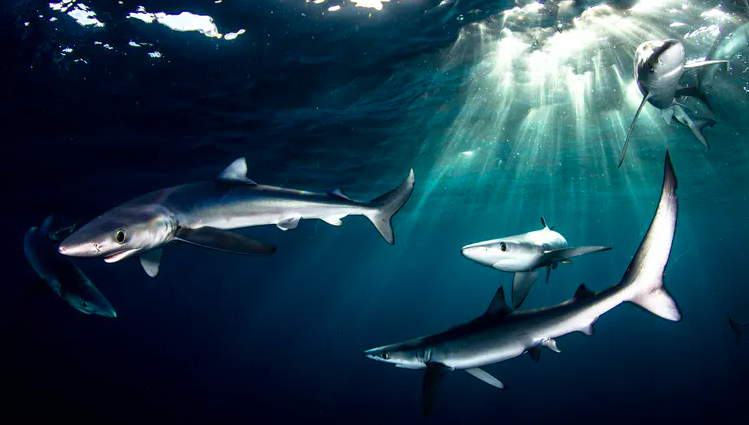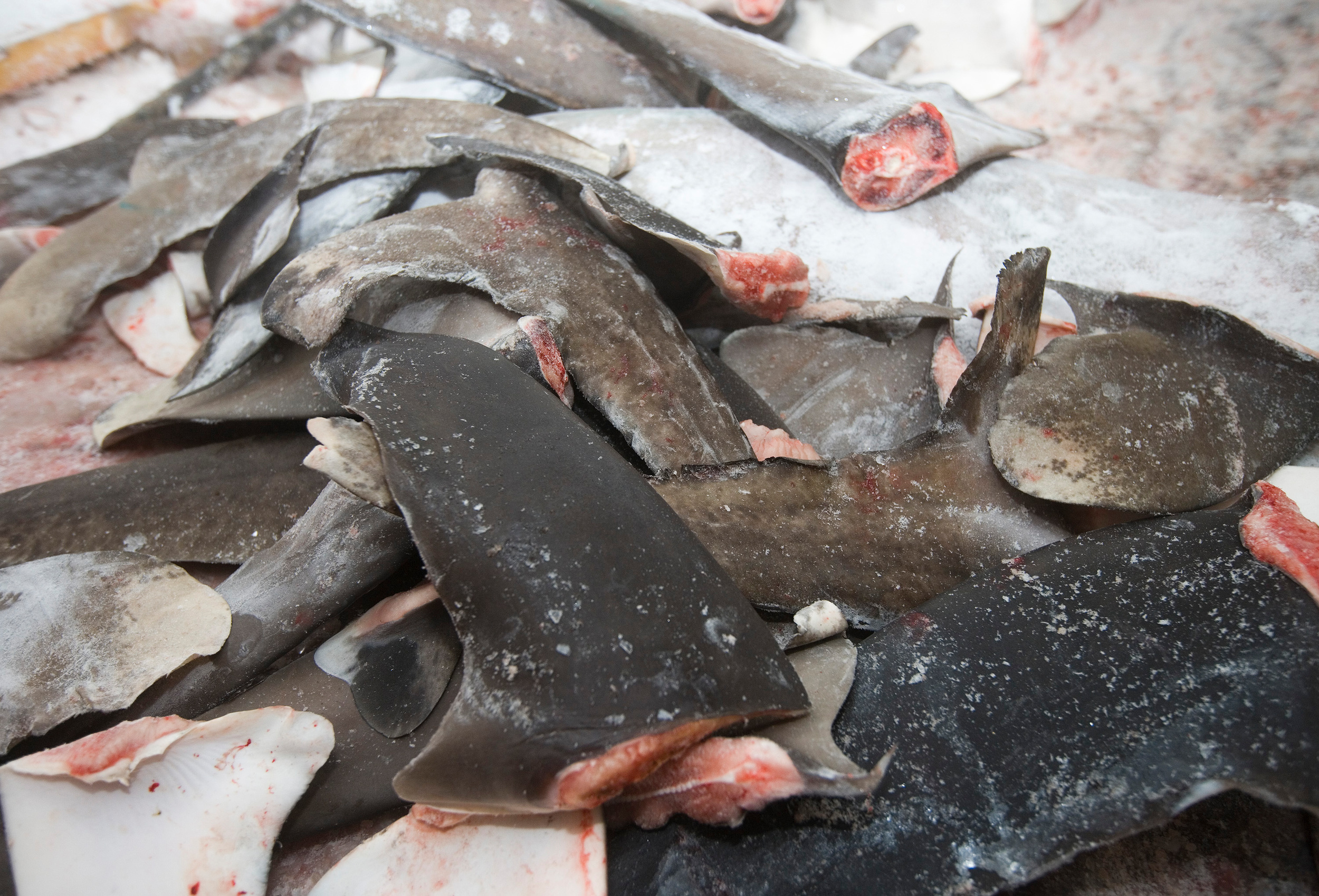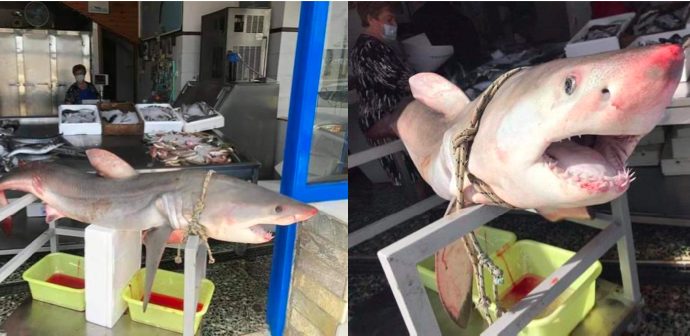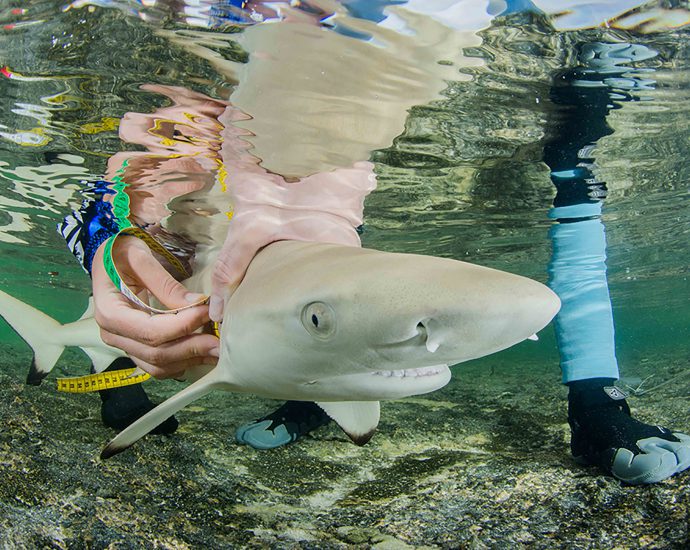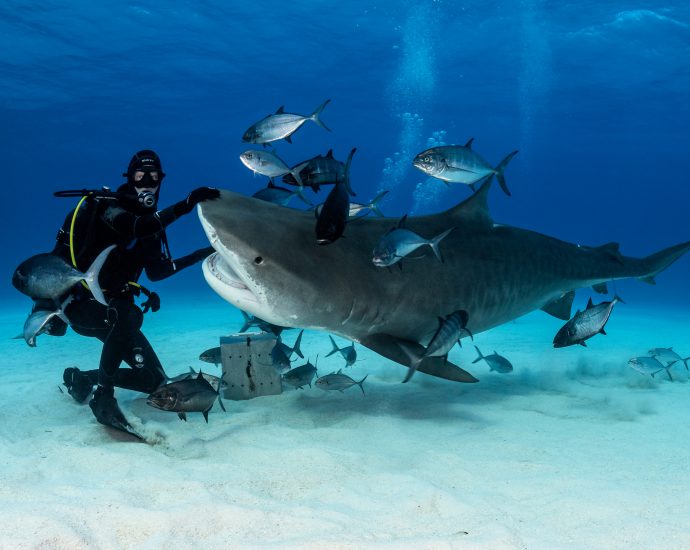South Africa’s plan to protect sharks needs an urgent update
GRAHAMSTOWN (South Africa)- When great white sharks disappeared from two well-known congregation areas on South Africa’s coast recently, the possible reasons were hotly debated. The appearance of a pair of shark-eating killer whales in the area was one. Another was the decline in numbers of smaller shark species that greatContinue Reading
Before Shark Week and ‘Jaws,’ World War II spawned America’s shark obsession
AUSTIN (USA)- Every summer on the Discovery Channel, “Shark Week” inundates its eager audiences with spectacular documentary footage of sharks hunting, feeding and leaping. By Janet M. Davis, The University of Texas at Austin College of Liberal Arts Debuting in 1988, the television event was an instant hit. Its financialContinue Reading
UK bans import and export of shark fins
LONDON (UK)- An important win for sharks! The British government today announced a ban on the import and export of shark fins. Thanks to successful campaigns by British shark conservation organizations. The new legislation will require all imported and exported shark fins to remain attached to the shark carcass and onlyContinue Reading
Great white on display in Greece, organisations urge for more protection
NAXOS (Greece)- 23 Greek Environmental Organisations call on the Ministry of Rural Development and Food to implement the legislation on the protection of sharks and rays in Greece. They have done this after yet another unfortunate incident of catching, selling and displaying of a Great White Shark in the Mediterranean, this timeContinue Reading
Small grants open for shark and ray projects
GENEVA (SWITZERLAND)- The Save Our Seas Foundation (SOSF) is dedicated to the conservation our oceans, with a particular focus on securing a sustainable future for sharks and rays. Predators like sharks play a crucial role in healthy marine ecosystems, and the oceans are our life support – we rely onContinue Reading
Electronic deterrents help avoid shark attacks
ADELAIDE (Australia)- If all Australians that go into the ocean were to use electronic deterrents, over a thousand people could avoid being bitten by a shark across Australia in the next 45 years. Research funded by the Flinders University Marine and Coastal Research Consortium has used data of the AustralianContinue Reading
Tiger shark is older than we thought
VIENNA (Austria)- Modern tiger sharks are older than previously thought and in the past several tiger shark species existed compared to the single species living today. That’s what an international team of researchers, led by Julia Türtscher from the University of Vienna, found out by examining the fossil record ofContinue Reading


